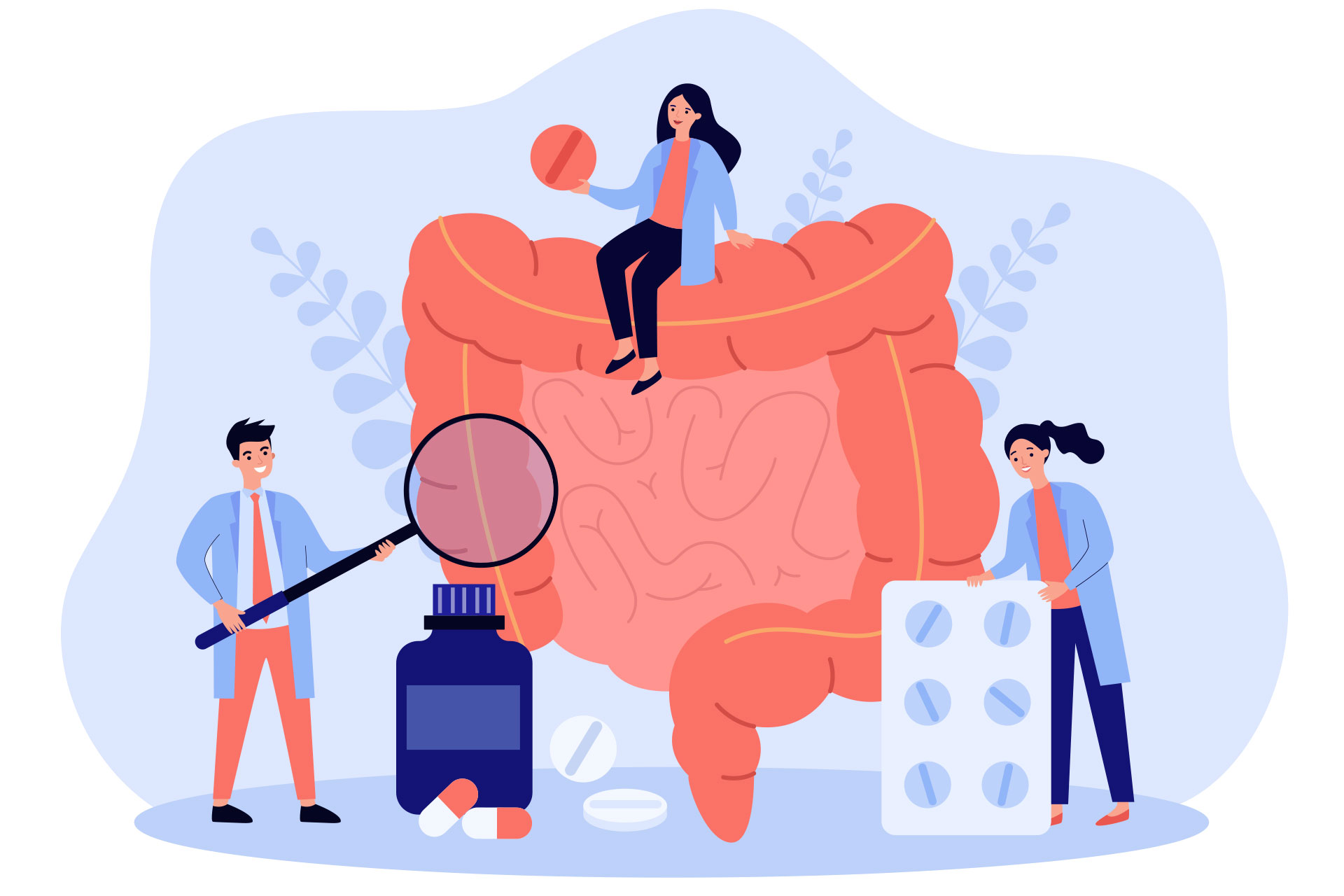Everyday ailments like abdominal and intestinal distress are common concerns, but when these issues become chronic, they may indicate a more severe condition: gastrointestinal disease. Two of the most prevalent types are Crohn’s disease and ulcerative colitis, which fall under the umbrella of inflammatory bowel disease (IBD). Both conditions are on the rise, particularly among young people in their teens and early twenties.
Crohn’s disease and ulcerative colitis cause symptoms such as severe abdominal pain and bloody diarrhea, often accompanied by weight loss, fatigue, and complications in the skin, liver, and eyes. These chronic diseases significantly impact patients’ quality of life, requiring proper medication and care to manage symptoms.
As we observe Crohn’s & Colitis Awareness Week, we must shed light on these conditions, support those affected, and explore ways to provide adequate care at home, including nurses and therapists’ critical roles.
What Is Crohn’s Disease and What Does Colitis Mean?
To understand the significance of Crohn’s & Colitis Awareness Week, let’s break down these conditions:
Although the symptoms of both diseases can be severe, many patients do not consider them disabilities. However, frequent and urgent bathroom trips often interfere with daily life, causing patients to miss out on education, work, and social opportunities. This isolation can lead to mental health challenges such as anxiety and depression.
Is There a Cure for Crohn’s Disease or Ulcerative Colitis?
Unfortunately, there is no cure for Crohn’s disease or ulcerative colitis. Both are chronic conditions requiring lifelong management. Treatments aim to reduce inflammation, relieve symptoms, and improve the patient’s quality of life. Common Crohn’s disease treatment options include anti-inflammatory medications, immune system suppressors, and biologics.
Dietary adjustments, stress management, and regular monitoring are also key components of managing IBD. Despite advances in treatment, the unpredictable nature of these diseases continues to pose challenges for patients and healthcare providers alike.
The History of Crohn’s & Colitis Awareness Week
Crohn’s & Colitis Awareness Week highlights the journey of understanding these diseases and advocating for patients.
In the late 19th century, physicians first identified ulcerative colitis, but the distinct symptoms of Crohn’s disease were only recognized in the 1930s. The awareness movement gained momentum in the 1950s when Suzanne Rosenthal, a young woman diagnosed with Crohn’s disease, co-founded an organization dedicated to spreading knowledge about the condition.
This week is now a platform to educate the public about IBD, advocate for patients, and call for improved treatments and support systems.

Observing Crohn’s & Colitis Awareness Week
Crohn’s & Colitis Awareness Week is more than just a time to raise awareness; it’s an opportunity to take action. Here’s how you can contribute:
Participating in these activities can help create a supportive community for those living with Crohn’s disease and ulcerative colitis.
The Role of Nurses and Therapists in IBD Home Care
For patients with severe IBD symptoms, managing the disease at home is often essential. Skilled and compassionate healthcare professionals, including nurses and therapists, play a vital role in helping patients live more comfortably.
Nurses in IBD Care
Therapists’ Contribution
Why Awareness Matters
Approximately 1.6 million Americans live with IBD, and over 70,000 new cases are diagnosed annually in the United States. Raising awareness during Crohn’s and Colitis Awareness Week helps:
- 1Encourage early diagnosis and intervention.
- 2Advocate for improved treatments and healthcare policies.
- 3Promote empathy and reduce the stigma surrounding chronic illnesses.
Supporting IBD Patients: Community Efforts
The success of awareness efforts relies on the dedication of the entire community. Organizations, healthcare providers, and individuals can work together to:
- 1Provide resources for patients and caregivers.
- 2Fund research to develop better treatments and, ultimately, a cure.
- 3Promote inclusivity and understanding in schools, workplaces, and public spaces.
Living with IBD: Steps Toward a Better Future
While Crohn’s disease treatment cannot cure the condition yet, it can significantly improve patients’ quality of life. By combining medical care, mental health support, and lifestyle adjustments, individuals with IBD can manage their symptoms and lead fulfilling lives.
As we observe Crohn’s & Colitis Awareness Week, let us remember the importance of digestive health, support the IBD community, and advocate for a future where these diseases no longer define anyone’s potential.
Crohn’s disease and ulcerative colitis are more than physical ailments—they affect every aspect of a patient’s life. Through awareness, compassion, and comprehensive care, we can make a difference for millions living with these conditions. Let this week inspire action and commitment to improving lives, one step at a time.
Call Signature 24/7 at 1 (800) 277-8291 for excellence in skilled and compassionate home health care.

Your Complete Home Health Care Solution!
ALWAYS ON CALL
| Monday – Sunday | 24 / 7 |
1 (800) 277-8291 (option 1)
COUNTIES SERVED
OUR VALUES
TESTIMONIALS

I love all of my home health people.

All Signature staff as well as therapy were very helpful.

Their services have always been great.

I really love my physical therapist. Gary has helped me so much.

This has been one of the best agencies. Very caring nurses.

I’ve had a really good physical therapist and really nice nurses.

I have had excellent care & would recommended them to anyone.

Gary Dixon is the very best physical therapist in Baytown and Houston Area.

